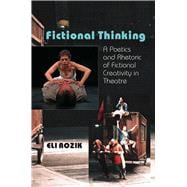
| Introduction | |
| State of the Art & Perspectives | |
| The Nature of Fictional Worlds | |
| The Mythical Layer | |
| The Praxical Layer | |
| The NaÔve Layer | |
| The Ironic Layer | |
| The Modal Layer | |
| The Aesthetic Layer | |
| Structure of Character | |
| Characterisation & Credibility | |
| Intertextual Relations | |
| Fictional Interaction | |
| Fictional Time & Place | |
| Metaphoric Structure | |
| Allegoric Structure | |
| Rhetoric Structure | |
| Spectator's Complementation | |
| Hamartia / Catastrophe Structure | |
| Virtue / Villainy Structure | |
| Hamartia & Christianity | |
| Absurdist Structure | |
| Structure of Conflict | |
| Ritual Experience & Truth | |
| Anti-Aristotelian Poetics | |
| Generic Transformation: The Hippolytus-Phaedra | |
| Generation of Life is a Dream from Oedipus the King | |
| Deconstruction of Archetypal Characterisation in The Seagull | |
| The Chairs in Performance | |
| Index | |
| Table of Contents provided by Publisher. All Rights Reserved. |
The New copy of this book will include any supplemental materials advertised. Please check the title of the book to determine if it should include any access cards, study guides, lab manuals, CDs, etc.
The Used, Rental and eBook copies of this book are not guaranteed to include any supplemental materials. Typically, only the book itself is included. This is true even if the title states it includes any access cards, study guides, lab manuals, CDs, etc.